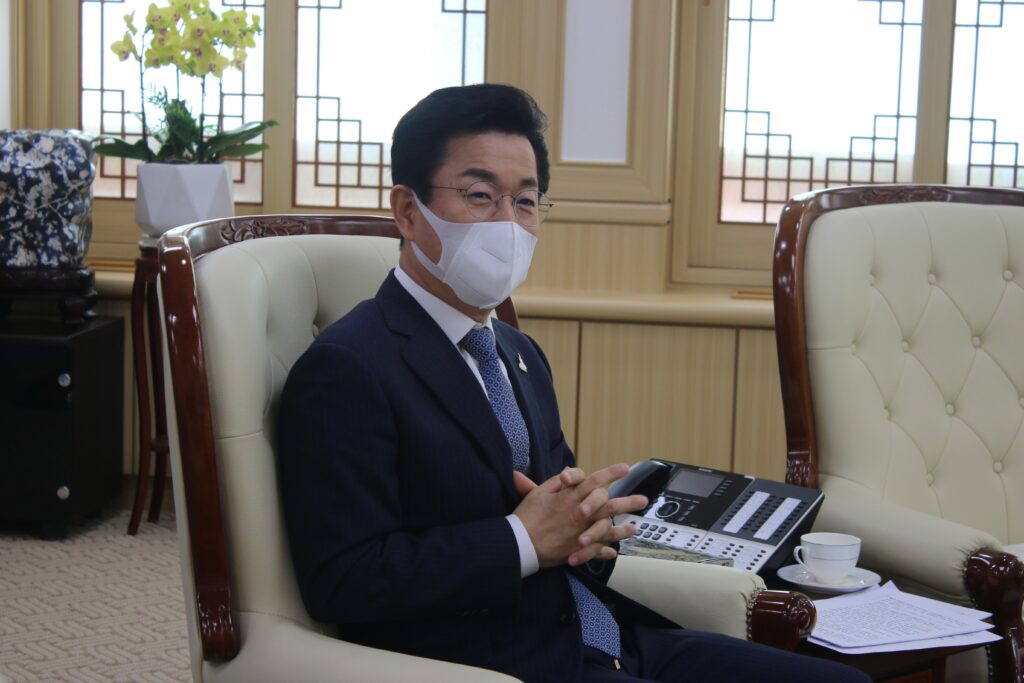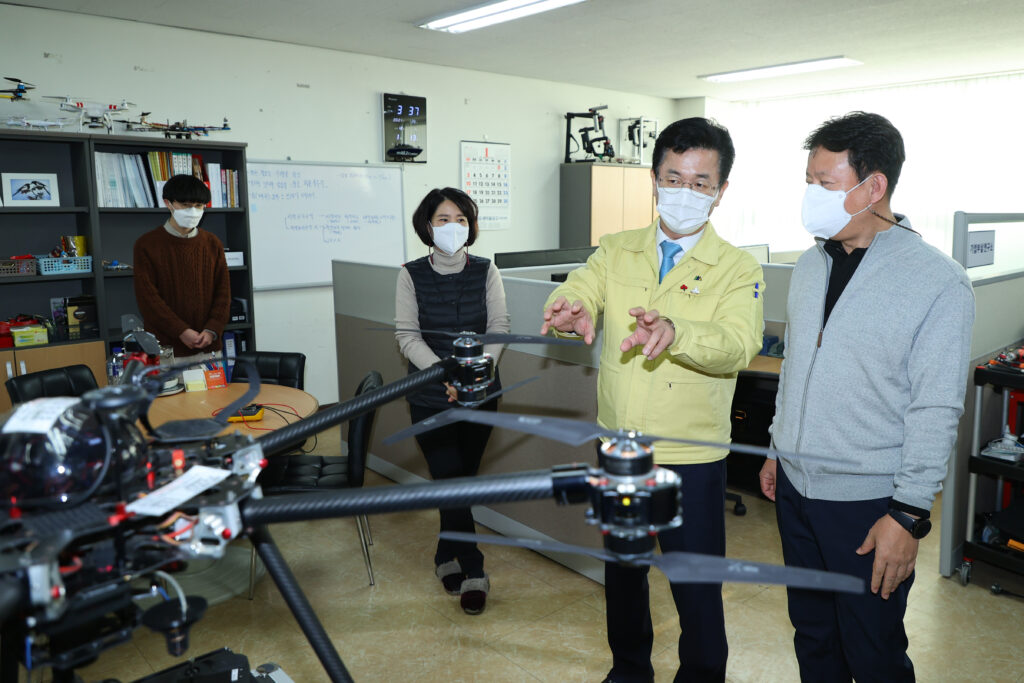In a conversation with Los Angeles Times Asia Journal, Tae-jeong Her, the mayor of Daejeon, South Korea’s fifth-largest metropolitan city, discusses his thoughts on how the city government supports small and medium-sized enterprises(SMEs) and startups located in the city and what he think priorities the city will have going forward are.

At a distance of about one hour from the capital of South Korea, Seoul, the Daejeon metropolitan city is a place where people, technology, and nature harmoniously coexist. Geographically located in the center of South Korea, Daejeon serves as a hub of transportation and is a place where business and research activities are conducted efficiently and conveniently. It is now being reborn as a mainstay for innovative technology enterprises that compete on the world stage.
The Daejeon city government aims to play a prominent role in ‘The Korean New Deal’ which was newly declared by the South Korean government. The policy is designed to conduct transition in response to global crises such as pandemic and climate change, which is based on three main pillars ━the Digital New Deal, the Green New Deal, and strengthening employment and social safety net━ “It is confident that Daejeon is the most optimized city for the transition policy promoted by the central government, and we want to alchemize this moment into positive change.” said the Mayor Her.
The city government not only supports the central transition policy but also maps out its own scheme to foster particularly following three major industries: 1) IT·AI 2) bio·medical, 3) high-tech materials and equipment. According to the Mayor, the city serves as both a cradle and stronghold for thousands of high-tech venture companies. Daejeon, especially, has high potential to become a promising R&D-led cluster for bio start-ups, equipped with the infrastructure of Daedeok Innopolis━which is an R & D special zone, is composed of government-funded research institutions, as well as private research institutes with as many as 20,000 researchers. The Innopolis is a mecca of technology commercialization of the vast potential of the ever-evolving technologies in Korea. Many testing kits for the novel coronavirus, which contributed to the 3T model━test, trace, and treat━of South Korea, were born in Daejeon. Now, Daejeon is dreaming of constructing its own bio-cluster modeled after the biotechnology cluster in the Boston metropolitan area.
In addition, Daejeon has been creating a business-friendly environment and support for industry academia-research collaboration, as well as strengthening the management capabilities of future entrepreneurs. Daejeon obtains high-qualified innovation manpower from 21 universities, including Korea Advanced Institute of Science and Technology (KAIST)━which has topped the annual ranking of Asia Pacific’s Most Innovative Universities, a Reuters list that identifies and ranks the educational institutions doing the most to advance science, during three consecutive years from 2016 to 2018.

Despite possessing a solid research basement, Mayor Her contemplates how to support the growth of SMEs and startups in the city. SMEs and startups are struggling to adapt to rapidly changing market demand and technological change within limited resources. Mayor Her is putting his eyes particularly on support for enterprises which want to break into the global market. In order to make them competitive with global players, the city government provides diverse support━financial funding, establishment of an ecosystem for start-ups, and support for technology commercialization, export, and consulting━with affiliated organizations such as Daejeon TechnoPark. Recently, Daejeon city applied for the national project to construct the Startup Park, which is funded by the Ministry of SMEs and Startups and supposed to be built at the end of 2022 (total area: 13,000m² / total budget: $ 31 million). The Startup Park aims to establish the platform to foster global competitiveness of startups with organic cooperation and exchange between industry, academia, and research. Within this framework, Daejeon City is expected to extend its international network with global science cities, as well as promote foreign investment.
If the transformation of Daejeon is conducted well enough, it is also expected to promote balancing regional development in South Korea, which attempts to decentralize. Due to the overpopulation in the capital area, Daejeon City is facing the problem of outflow of human resources, finances, and market shares to the Seoul metropolitan area. Mayor Her is raising his voice that Chungcheong Region, including Daejeon city, Sejong city, and Chungcheong province, should be integrated with each other in order to possess an economy of scale with a population of more than 5 million and to have global competitiveness as well as domestic competitiveness. If four local governments share and harness transportation and economic infrastructure, he believes that Chungcheong Region including Daejeon will be able to show high potentiality and the companies in the region will expand their businesses together as well.
Daejeon is showing leadership in peacebuilding for cities as the United Cities and Local Governments (UCLG) World Congress, which is an organization that represents the interests of local governments on the global stage, is scheduled to take place in Daejeon. It is expected that about 5,000 local leaders from different 1,000 cities in 140 countries will visit the Daejeon metropolitan city, the Mayor explains. Furthermore, the city is preparing bids for international events such as Asian Science Camp (ASC) 2022, Photonics and Electromagnetics Research Symposium (PIERS) 2022, and International Society for Animal Genetics (ISAG) 2022 in order to increase its global competitiveness.
The Daejeon metropolitan is considering ways to improve the quality of citizens’ standard of living and to combine a set of infrastructural, institutional, technological, educational and social assets, together with value added services. Thus, the main priority of Mayor Her is to enhance sustainable economic development and prosperity with and for the community. Los Angeles Times Asia Journal hopes that its development would contribute to the flourishing of SMEs and Startups in the city as the future of South Korea depends on how startups grow and whether they can open the doors to a global era amid a lackluster economic environment.
Kayla Hong
Asia Journal
(Los Angeles Times Advertising Supplement)

